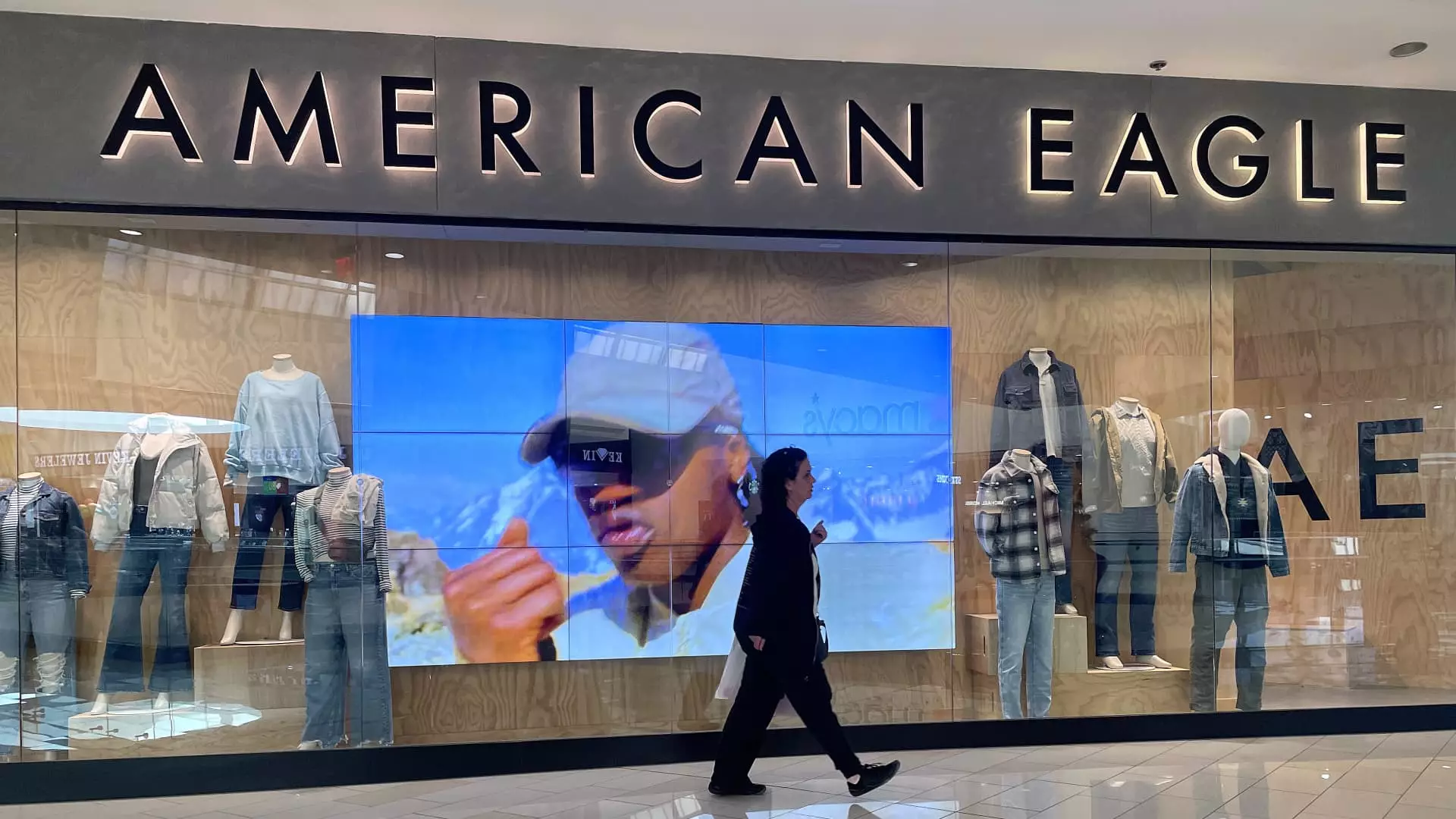In a notable legal showdown, American Eagle Outfitters has initiated a lawsuit against Amazon, alleging trademark infringement concerning its Aerie clothing line. This case, filed in the U.S. District Court for the Southern District of New York, paints a troubling picture of e-commerce practices that could erode brand integrity and consumer trust. The implications of this lawsuit extend beyond American Eagle and Amazon, reflecting wider concerns about the challenges traditional retailers face in the age of online marketplaces.
The Allegations: A Breach of Brand Trust
American Eagle claims that Amazon has engaged in “flagrant, unauthorized use” of its Aerie and Offline by Aerie trademarks. The crux of the complaint is that Amazon’s search results mislead consumers into thinking they are purchasing authentic Aerie products when they are actually being presented with what American Eagle describes as “inferior quality knock-offs” or “dupes.” This claim raises significant concerns regarding the ethical responsibilities of e-commerce platforms in how they promote and display products.
The lawsuit asserts that a simple search for Aerie items on platforms like Google would yield sponsored ads leading shoppers directly to Amazon’s marketplace. Here, consumers allegedly find only subpar imitations of Aerie’s signature offerings, such as yoga pants and loungewear, which could detrimentally impact American Eagle’s brand reputation. By intentionally bypassing a relationship with Amazon, American Eagle emphasizes its desire to cultivate a distinct brand identity for Aerie, which it launched in 2006, projecting authenticity and quality in a retail landscape increasingly muddied by counterfeit products.
American Eagle’s decision to distance itself from Amazon highlights a crucial dilemma in modern retail: the balance between brand integrity and market accessibility. For burgeoning brands, especially those focusing on quality and a defined customer experience like Aerie, platforms like Amazon can be both a boon and a bane. While these platforms offer unparalleled exposure, they also risk diluting the brand’s value through the sale of unauthorized merchandise that conveys a blurring of lines between genuine and counterfeit.
The lawsuit also underscores the growing consumer confusion in finding authentic products amidst a sea of counterfeit options. With nearly half of all goods sold on Amazon being through third-party sellers, identifying what’s genuine has become increasingly challenging for consumers. This confusion is compounded when counterfeit items are marketed using misspellings of established trademarks, as American Eagle alleges in its complaint.
American Eagle’s lawsuit isn’t an isolated incident but part of a larger trend. The prevalence of counterfeit products lurking amidst legitimate offerings on major marketplaces has been a recurring theme, as seen in previous legal battles involving brands like Birkenstock and Daimler AG. With a vast network of third-party sellers, Amazon has consistently grappled with the challenge of monitoring counterfeit sales and protecting its brands’ reputations. The negative repercussions of this problem can resonate deeply within the retail community and harm consumer trust.
Furthermore, Amazon’s attempts to address these concerns over the years—through increased surveillance, criminal action against counterfeiters, and launching brand protection tools—reflect a recognition of the seriousness of counterfeiting issues. Yet, critics argue that the measures in place may not be sufficient to foster a trustworthy environment for both brands and consumers.
As American Eagle seeks an injunction and financial damages from Amazon, the implications of this lawsuit are profound. It raises questions about the responsibilities that e-commerce platforms have to their sellers and consumers in safeguarding brand integrity. For American Eagle, the stakes are not just legal; they are about preserving Aerie’s brand identity in an increasingly complex marketplace.
In a digital age where brands are often defined by their online presence, this lawsuit acts as a clarion call for greater accountability from major players like Amazon to foster an environment where authenticity flourishes over counterfeit opportunism. The outcome of this case will not only impact American Eagle but could set a precedent for how trademark issues are managed in the e-commerce sector, ultimately shaping the future landscape of retail.


Leave a Reply
You must be logged in to post a comment.